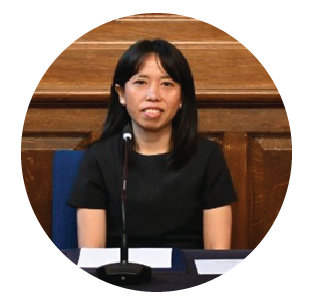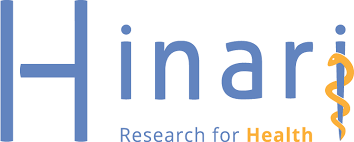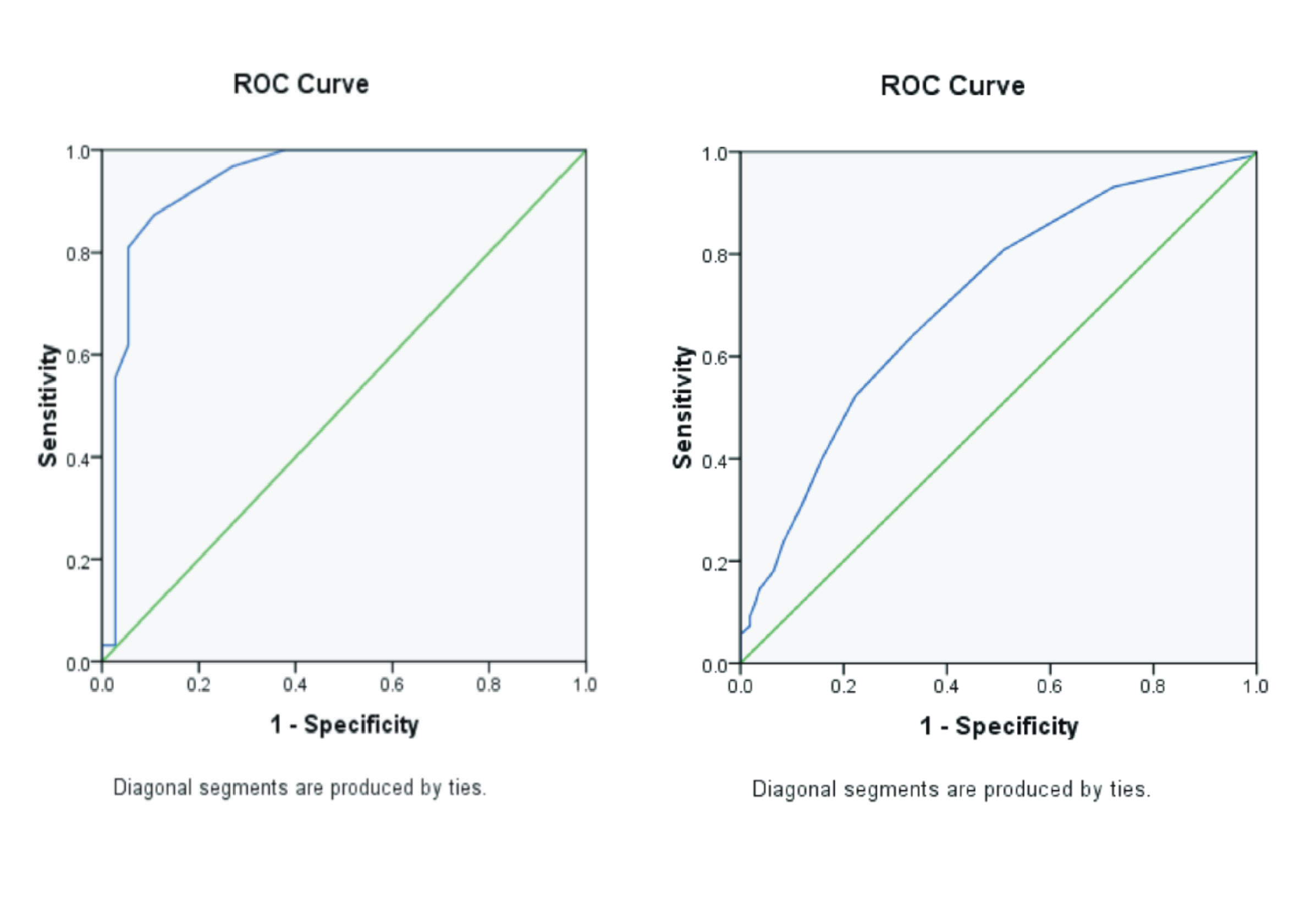THE DIFFERENCE BETWEEN WORK STRESS BEFORE AND AFTER SPIRITUAL EMOTIONAL FREEDOM TECHNIQUE (SEFT) THERAPY

Background: Nurses are susceptible to work stress caused by conflicts with coworkers and superiors, as well as uncertainty about the effects of therapy on patients. The preliminary study results on 15 nurses showed that 11 nurses (73%) experienced moderate stress, while four nurses (27%) experienced severe stress. Purpose: This research aims to analyze the differences before and after Spiritual Emotional Freedom Technique (SEFT) therapy in reducing nurses’ stress. Method: This study applied a quantitative approach, utilizing a pre-experimental design with a one-group pre-post test design involving 36 nurses before and after SEFT therapy. Sampling was conducted using a total sampling technique. The study was carried out from July to August 2021, using the Occupational Stress Inventory-Revised Edition (OSI-R) questionnaire. A Paired Sample T test was utilized as the statistical test. Result: The univariate test results for work stress before and after SEFT therapy were 77.75 and 71.11, respectively. The bivariate test, with p-value of 0.001, revealed differences in work stress scores before and after SEFT therapy for nurses. Conclusion: SEFT therapy can reduce the stress of nurses at Hospital A. Therefore, the hospital management needs to implement SEFT therapy to reduce work-related stress for the nurses.
Introduction
An average of 400.000 workers annually experiences work stress, lasting for one year or more.Health Safety Environment(HSE) estimates that approximately 534.000 workers experiencing stress cause the industry to lose 12.8 million work hours and incur a loss of 8 billion USD (Hughes and Ferrett, 2015(Source Title, 2015)). In 2020-2021, 822.000 workers in the UK experienced work-related stress, depression, and anxiety, marking an increase compared to 2018-2019. Workers at risk of work-related stress, depression, and anxiety include those in the health, education, security, and service sectors (HSE, 2022(H.S.E., 2022)).
Work-related stress is a physiological and psychological response of workers to work demands and pressures that are either greater than or beyond the capacity of workers (Kurniawidjadja et al., 2002(Kurniawidjadja et al., 2002)). The primary causes of work-related stress, depression, and anxiety are job demands such as deadlines for completing tasks, lack of leadership, relationships between workers and management, individual factors, and working conditions (Hughes and Ferrett, 2015(Source Title, 2015); HSE, 2022(H.S.E., 2022)).
The results of a study by Gu et al. (2019)(Gu et al., 2019)revealed that 68.3% of nurses experienced high work stress. Based on a cross-sectional study conducted at a government hospital in Harar, East Ethiopia, 66% of nurses experienced work stress (Baye et al., 2020(Baye et al., 2020)). Even in a densely populated city, the study results showed that nurses working in public hospitals were more stressed, namely as much as 51.6% compared to nurses in private hospitals as much as 46.4% (Tsegaw et al., 2022(Tsegaw et al., 2022)).
The causes of work-related stress experienced by nurses include conflicts with co-workers, conflicts with superiors, and uncertainty about the effects of therapy on patients. These factors result in low job satisfaction, negative work attitudes, and poor service quality (Mariana et al., 2021(Mariana & Ramie, 2021)). Johnson et al. (2020)(Johnson et al., 2020)stated that low self-esteem poses a risk of causing stress and leading to burnout, occurring three times more often (Johnson et al., 2020(Johnson et al., 2020)). Moreover, during the COVID-19 pandemic, nurses’ work stress levels increased. This is caused by role conflict and the work environment, marital status, having children, community stigma regarding COVID-19, fear of nurses being infected with the COVID-19 virus, fear of transmitting COVID-19 to families, the availability ofPersonal Protective Equipment(PPE), and the ratio of nurses and patients (Sarafis et al., 2016(Sarafis et al., 2016); Alkautsar et al., 2021(Alkautsar et al., 2021); Hendy et al., 2021(Hendy et al., 2021); Siswadi et al., 2021(Siswadi et al., 2021)). Leadership can also contribute to work stress among nurses (Raesi et al., 2021(Raesi et al., 2021)). It impacts the quality of life for nurses, encouraging them to leave their jobs, causing fatigue, and decreasing work performance (Jalilian et al., 2019(Jalilian et al., 2019); Rivai, 2019(Rivai, 2019); Hakman et al., 2021(Hakman et al., 2021); Raesi et al., 2021(Raesi et al., 2021); Rudyarti, 2021(Rudyarti, 2021); Siswadi et al., 2021(Siswadi et al., 2021); Tumarni et al., 2022(Tumarni et al., 2022)).
Spiritual Emotional Freedom Technique, abbreviated as SEFT, is the development ofEmotional Freedom Technique(EFT) therapy, designed to overcome emotions by stimulating specific meridian points on the body through light tapping on the fingertips (Ardan, 2020(Ardan, 2020)). SEFT is commonly used to manage body weight. It has been found effective in reducing stress and anxiety among patients, workers, and students. Additionally, it has demonstrated stress reduction benefits for patients with kidney failure and hypertension (Risfinda et al., 2018(Risfinda & Amir, 2018); Wati et al., 2019(Wati et al., 2019); Krisnawardhani and Noviekayati, 2021(Krisnawardhani & Noviekayati, 2021)). A study by Sakinah showed that SEFT was significantly effective in reducing work stress among nurses at PKU Muhammadiyah Yogyakarta Hospital (Sakinah, 2018(Sakinah, 2018)).
Hospital A is a private hospital that serves general patients and patients using the Social Health Insurance Administration Body (BPJS healthcare program), a social security agency in Indonesia aimed at providing universal healthcare to its citizens. The hospital provides services for outpatients, inpatients, and patients undergoing eye surgery. The operational schedule is divided into morning shifts (08:00 to 16:00 WIB), afternoon shifts (12:30 to 20:00 WIB), and night shifts/special inpatients (20:00 to 07:00 WIB). The preliminary results of theOccupational Stress Inventory-Revised Edition(OSI-R) questionnaire showed that 11 nurses (73%) experienced moderate stress, and four nurses (27%) experienced severe stress. Therefore, the authors conducted this study to analyze the differences in nurses’ stress levels before and after SEFT therapy. SEFT therapy is widely practiced on patients, students and nurses. However, in this study it was guided by a psychologist. The results of this study will be valuable for implementing mental health strategies for healthcare workers, especially nurses.
Material and Method
This research received ethical approval with the number 0315-21.315/DPKE-KEP/LastEA/UEU/IX/2021. A pre-experimental study employing a one group pre-post test design, where the dependent variable was stress and the independent variable was SEFT therapy, was conducted. This measurement method uses stress using the Occupational Stress Inventory- Revised Edition (OSI-R) questionnaire. The OSI-R questionnaire is based on 25 questions that are very potential in hospitals, whereby these dimensions are measured using the categories of (1) Never,
Alkautsar, E., Efendi, I., Asriwati, A., 2021. Analisis Faktor yang Mempengaruhi Stres Kerja Perawat di Ruang IGD Rumah Sakit Umum Milik Pemerintah Cut Mutia di Aceh Utara. Journal of Healthcare Technology and Medicine. Vol. 7(2), Pp. 1251-1261.
Ardan, M., 2020. Penerapan Spiritual and Emotional Freedom Technique untuk Pelayanan Kesehatan dan Mental. Yayasan Barcode.
Astuti, R.T., Ediyono, S., 2021. Spiritual Emotional Freedom Technique (SEFT) Therapy in Stress and Traumatic during The Pandemic Covid-19 : A Literature Review. In: Proceedings of The 2nd Borobudur International Symposium on Humanities and Social Sciences, BIS-HSS 2020. EUDL European Union Digital Library, Magelang, Central Java, Pp. 1-5.
Baye, Y., Demeke, T., Birhan, N., Semahegn, A., Birhanu, S., 2020. Nurses’ Work-Related Stress and Associated Factors in Governmental Hospitals in Harar, Eastern Ethiopia: A Cross-Sectional Study. PLoS One Vol. 15(8), Pp. e0236782.
Chodijah, M., Nurjannah, D.S., Yuliyanti, A.Y., Kamba, M.N.S., 2020. SEFT sebagai Terapi MengatasiKecemasan menghadapi COVID-19. UIN SunanGunung Djati Bandung.
Gu, B., Tan, Q., Zhao, S., 2019. The Association between Occupational Stress and Psychosomatic Wellbeing among Chinese Nurses: A Cross-Sectional Survey. Med. Vol. 98(22), Pp. e15836.
Hakman, H., Suhadi, S., Yuniar, N., 2021. Pengaruh Beban Kerja, Stres Kerja, Motivasi Kerja terhadap Kinerja Perawat Pasien COVID-19. Nursing Care and Health Technology Vol. 1(2), Pp. 1-8.
Hendy, A., Abozeid, A., Sallam, G., Fattah, H.A.A., Reshia, F.A.A., 2021. Predictive Factors Affecting Stress among Nurses Providing Care at COVID-19 Isolation Hospitals at Egypt. Nursing Open Vol. 8(1), Pp. 498–505.
HSE, 2022. Work-Related Stress, Anxiety or Depression Statistics in Great Britain, 2022. Health and Safety Executive. URL https://www.hse.gov.uk/statistics/causdis/stress.pdf
Hughes, P., Ed Ferrett, E.F., 2015. Introduction to Health and Safety at Work, 7 th ed. Routledge, London.
Jalilian, H., Azmoon, F.K.S.H., Rostamabadi, A., Choobineh, A., 2019. Relationship between Job Stress and Fatigue Based on Job Demand-Control-Support Model in Hospital Nurses. International Journal of Preventive Medicine Vol. 10(56), Pp. 1-6.
Johnson, A.R., Jayappa, R., James, M., Kulnu, A., Kovayil, R., Joseph, B., 2020. Do Low Self-Esteem and High Stress Lead to Burnout among Health-Care Workers? Evidence from A Tertiary Hospital in Bangalore, India. Safety and Health Work Vol. 11(3), Pp. 347–352.
Krisnawardhani, K.K., Noviekayati, I., 2021. Terapi SEFT (Spiritual Emotional Freedom Technique) untuk Meredakan Gangguan Cemas Menyeluruh pada Subjek Dewasa. Syntax Literate: Jurnal Ilmiah Indonesia Vol. 6(5), Pp. 2251.
Kurniawidjadja, M., Martomulyono, S., Susilowati, I.H., 2002. Teori dan Aplikasi Promosi Kesehatan di Tempat Kerja. Universitas Indonesia Publishing, Depok, Jawa Barat.
Mariana, E.R., Ramie, A., 2021. Analisis Hubungan Beban Kerja dengan Stres Kerja Perawat: Literature Review. Jurnal Keperawatan Merdeka (JKM) Vol. 1(2), Pp. 158-168.
Rachmawati, N., Aristina, T., 2019. Pengaruh Terapi Spiritual Emosional Freedom Technique (SEFT) terhadap Stres Mahasiswa di Akademi Keperawatan “YKY” Yogyakarta. Jurnal Ners Lentera Vol. 7(1), Pp. 73–84.
Raesi, R., Abbasi, Z., Saghari, S., Bokaie, S., Raei, M., Hushmandi, K., 2021. Evaluation of Factors Affecting Job Stress in Nurses Caring for COVID-19 Patients. Journal of Marine Medicine Vol. 3(4), Pp. 80-88.
Risfinda, Bayhakki, Amir, Y., 2018. The Effect of Combination Spiritual Emotional Freedom Technique (SEFT) Therapy and Hydrotherapy with A Mixture Red Ginger on Blood Pressure of Patients Hypertension. In: Bayhakki, Dewi, W.N., Amir, Y., Agrina, Woferst, R., Novayelinda, R., Erika, Elita, V., Sabrian, F., Utono, W., Wahyuni, S. (Eds.), Riau International Nursing Conference 2018. Faculty of Nursing, Universitas Riau, Riau. Pp. 11-16.
Rivai, A., 2019. Pengaruh Stres Kerja dan Lingkungan Kerja terhadap Keinginan Perawat untuk Berhenti Bekerja pada Rumah Sakit Columbia Asia Medan. Jurnal Ilmiah Magister Abdi Ilmu Vol. 12(2), Pp. 64-74.
Rudyarti, E., 2021. Pengaruh Stres Kerja terhadap Kelelahan Kerja pada Perawat di Rumah Sakit X. Journal of Industrial Hygiene and Occupational Health Vol. 5(2), Pp. 13.
Sakinah, U., 2018. Spiritual Emotional Freedom Technique (SEFT) untuk Menurunkan Stres dan Meningkatkan Motivasi Kerja pada Perawat. Pascasarjana UIN Sunan Kalijaga.
Sarafis, P., Rousaki, E., Tsounis, A., Malliarou, M., Lahana, L., Bamidis, P., Niakas, D., Papastavrou, E., 2016. The Impact of Occupational Stress on Nurses’ Caring Behaviors and Their Health Related Quality of Life. BMC Nurs. Vol. 15(56), Pp. 1-9.
Siswadi, Y., Radiman, R., Tupti, Z., Jufrizen, J., 2021. Faktor Determinan Stress Kerja dan Kinerja Perawat. Jurnal Ilmiah Manajemen dan Bisnis Vol. 22(1), Pp. 17–34.
Tsegaw, S., Getachew, Y., Tegegne, B., 2022. Determinants of Work-Related Stress among Nurses Working in Private and Public Hospitals in Dessie City, 2021: Comparative Cross-Sectional Study. Psychology Research and Behavior Management Vol. 15, Pp. 1823–1835.
Tumarni, Wening, N., Junaidi, Sujoko, 2022. Stres Kerja Perawat pada Masa Pandemi COVID-19 : Suatu Tinjauan Literatur atas Penyebab dan Dampaknya di Berbagai Negara. Jurnal E-Bis (Ekonomi-Bisnis) Vol. 6(1), Pp. 56-73.
Wati, N.M.N., Mirayanti, N.W., Juanamasta, I.G., 2019. The Effect of Emotional Freedom Technique Therapy on Nurse Burnout. JMMR (Jurnal Medicoeticolegal dan Manajemen Rumah Sakit) Vol. 8(3), Pp. 173-178.
Copyright (c) 2025 Journal of Vocational Health Studies

This work is licensed under a Creative Commons Attribution-NonCommercial-ShareAlike 4.0 International License.
- The authors agree to transfer the transfer copyright of the article to the Journal of Vocational Health Studies (JVHS) effective if and when the paper is accepted for publication.
- Legal formal aspect of journal publication accessibility refers to Creative Commons Attribution-NonCommercial-ShareAlike (CC BY-NC-SA), implies that publication can be used for non-commercial purposes in its original form.
- Every publications (printed/electronic) are open access for educational purposes, research, and library. Other that the aims mentioned above, editorial board is not responsible for copyright violation.
Journal of Vocational Health Studies is licensed under a Creative Commons Attribution-NonCommercial-ShareAlike 4.0 International License














































